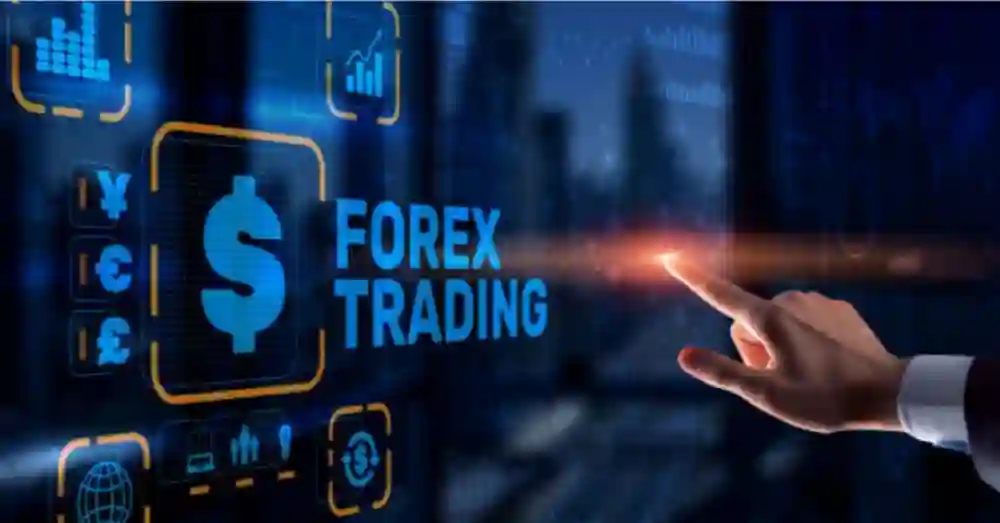
Traders often turn to forex robots as automated solutions to navigate the complexities of the forex market. This article delves into the psychology behind why traders place their trust in forex robots, exploring factors such as emotional biases, cognitive limitations, risk perception, and the allure of automation. By understanding the psychology of trust in forex robot trading, traders can make more informed decisions and harness the potential of automated trading systems effectively.
The forex market, with its volatility and unpredictability, can be daunting for traders, especially those who are prone to emotional biases and cognitive limitations. Forex robots, also known as expert advisors (EAs), offer traders automated solutions to execute trades based on predefined criteria and algorithms. Despite the risks and challenges associated with automated trading, many traders rely on forex robots as trusted tools to navigate the complexities of the forex market. This article explores the psychology behind why traders place their trust in forex robots and examines the factors that influence their decision-making processes.
The Role of Emotional Biases:
Fear and Greed: Emotional biases such as fear and greed often drive traders’ decision-making processes, leading to impulsive and irrational trading behaviors. Forex robots offer a solution by removing emotions from the trading equation, executing trades based on objective criteria and algorithms without succumbing to emotional biases.
Loss Aversion: Traders are often reluctant to accept losses and may hold onto losing positions in the hope of recouping losses, leading to further losses and emotional distress. Forex robots can help mitigate loss aversion by enforcing disciplined risk management measures, such as stop-loss orders, and adhering to predefined trading rules without emotional interference.
Overconfidence: Overconfidence bias can lead traders to overestimate their abilities and underestimate risks, resulting in excessive trading, high-risk strategies, and poor decision-making. Forex robots provide a counterbalance by applying systematic and disciplined trading strategies based on empirical evidence and historical data, reducing the impact of overconfidence bias on trading outcomes.
Cognitive Limitations and Decision-Making Heuristics:
Limited Attention and Information Processing: Traders may struggle to process vast amounts of market data and make informed decisions in real-time, leading to decision-making errors and missed opportunities. Forex robots excel in processing large datasets and analyzing market conditions swiftly, enabling traders to capitalize on market opportunities without cognitive overload.
Anchoring and Confirmation Bias: Anchoring bias occurs when traders fixate on specific price levels or reference points, leading to biased decision-making and distorted perceptions of market trends. Forex robots help mitigate anchoring bias by applying objective trading rules and algorithms based on empirical evidence, rather than subjective interpretations of market data.
Availability Heuristic: Traders often rely on recent or memorable events when making decisions, leading to biased perceptions of market probabilities and outcomes. Forex robots provide a systematic approach to decision-making, leveraging historical data and statistical analysis to assess market trends and probabilities objectively, irrespective of recent events or biases.
Perception of Risk and Uncertainty:
Risk Perception: Traders may perceive forex trading as inherently risky and uncertain, leading to anxiety, hesitation, and avoidance of trading opportunities. Forex robots offer a sense of security and control by implementing risk management measures, such as stop-loss orders and position sizing algorithms, to mitigate risks and preserve capital.
Trust in Automation: Traders trust forex robots to execute trades on their behalf based on predefined criteria and algorithms, alleviating concerns about human error, emotional biases, and impulsive decision-making. The perceived reliability and consistency of forex robots foster trust among traders, encouraging them to delegate trading responsibilities to automated systems.
Transparency and Accountability: Traders place trust in forex robots that provide transparency into their trading strategies, performance metrics, and decision-making processes. Forex robots that offer clear and comprehensive reporting, risk disclosures, and performance analysis instill confidence and trust among traders, enhancing their willingness to rely on automated trading systems.
The Allure of Automation:
Efficiency and Convenience: Forex robots offer traders efficiency and convenience by automating trading processes, reducing the time and effort required to monitor the market and execute trades manually. The hands-off approach of forex robots appeals to busy traders who seek passive income streams and lifestyle flexibility.
Access to Expertise: Forex robots allow traders to leverage the expertise of seasoned investors and professional traders by replicating their trading strategies and insights. The ability to access expert-level trading strategies and analysis through automated systems enhances traders’ confidence and performance in the forex market.
Scalability and Consistency: Forex robots enable traders to scale their trading operations and maintain consistency in trading strategies across different market conditions and timeframes. The scalability and consistency offered by automated trading systems appeal to traders seeking to diversify their portfolios, manage risk effectively, and achieve long-term profitability.
Conclusion:
The psychology of trust plays a significant role in why traders rely on forex robot as trusted tools to navigate the complexities of the forex market. Emotional biases, cognitive limitations, risk perception, and the allure of automation influence traders’ decision-making processes and attitudes toward automated trading systems. By understanding the psychology behind trust in forex robot trading, traders can make more informed decisions, manage risks effectively, and harness the potential of automated trading systems to achieve their trading objectives in the dynamic and competitive forex market.
Related posts:


Forex & Crypto
5 Best Ways to Earn Crypto While You Sleep in 2025
Categories
- Apps (1)
- Automotive (23)
- Beauty (7)
- Business (122)
- Celebrities (2)
- Digital Marketing (21)
- Ecommerce (2)
- Education (22)
- Entertainment (39)
- Events (6)
- Fashion (1)
- Features (4)
- Finance (1)
- Fitness (10)
- Food (2)
- Forex & Crypto (23)
- General (116)
- Health (48)
- House (61)
- Lifestyle (57)
- Marketing (8)
- Parenting (3)
- Pets (10)
- Real Estate (8)
- Safety and Security (14)
- Social Media (31)
- Sports (142)
- Technology (73)
- Travel (23)





















